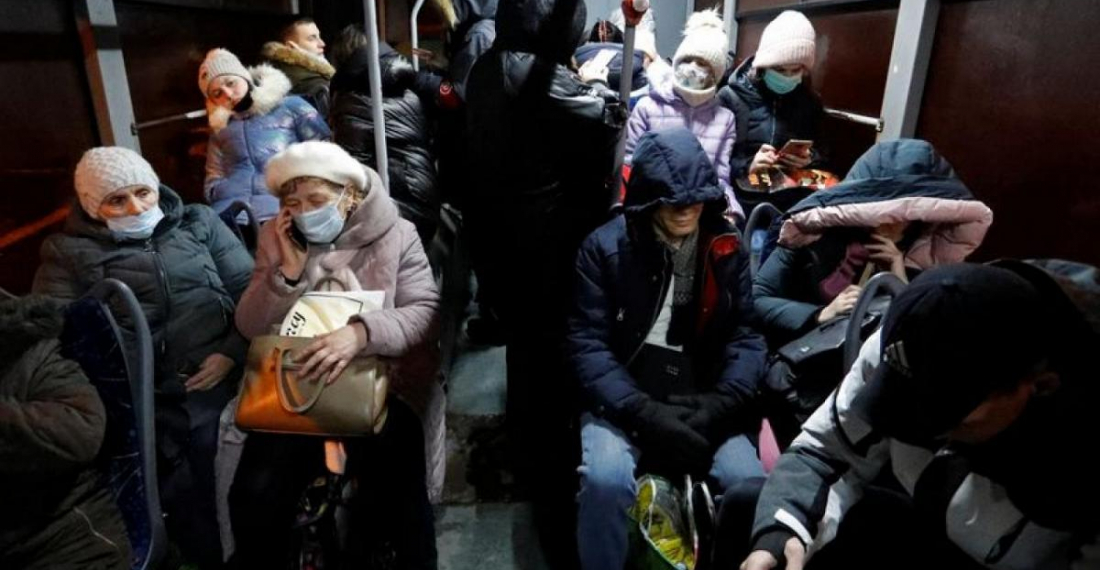This is a commentary prepared by the editorial team of commonspace.eu
The long expected war in Ukraine has not yet started, but refugees are already on the move. Thousands of people in Ukraine's eastern region of Donbass, which since 2014 has been under de facto Russian control, have been told to pack up and move to Russia, in anticipation of the coming conflict.
The local, Russian backed, de facto authorities, say that around 700,000 are being evacuated. They claim that they are evacuating children and old and vulnerable people because they fear a Ukrainian attack - a claim most observers consider absurd in the current circumstances when 190,000 Russian soldiers are amassed on Ukraine's borders.
At first the Russians tried to present this as an orderly evacuation, with stories in the Russian media of reception centres being prepared to receive the influx of refugees. On the ground however the situation appears to be much different. Russia it seems may be able to accept a few tens of thousands, but not hundreds of thousands.
And for those who have already left, it has not been a smooth journey either. Radio Free Europe reported on Saturday (19 February) that a less than 200 kilometer journey turned into an ordeal lasting more than 12 hours for dozens of residents of Donetsk and its environs. RFE correspondents caught up with passengers on buses that were part of a convoy in Taganrog in Russia’s Rostov region. By that stage, passengers said they had been kept on buses for hours with young children and frail relatives without food, water, bathroom facilities, or even anyone to ask about what will happen to them.
For older generations of Europeans memories of WWII remind them of the huge population displacements that that war caused. More recently the wars in the Balkans after the collapse of Yugoslavia, created their own refugee flows. And since, Europe has been the final destination of thousands of refugees fleeing conflicts in Africa and the Middle East.
But the sight of refugees on their own continent, again fleeing their homes amid the rumblings of war, still unsettles Europeans, many of who thought these were things of the past. Within the EU, a younger generation brought up in an era of peace and relative prosperity is struggling to understand the news coming out of Ukraine, and the human tragedy that is about to unfold unless there is some last minute diplomatic breakthrough. For Europeans indeed Ukraine may be the wake-up call they had hoped they would never get again.






